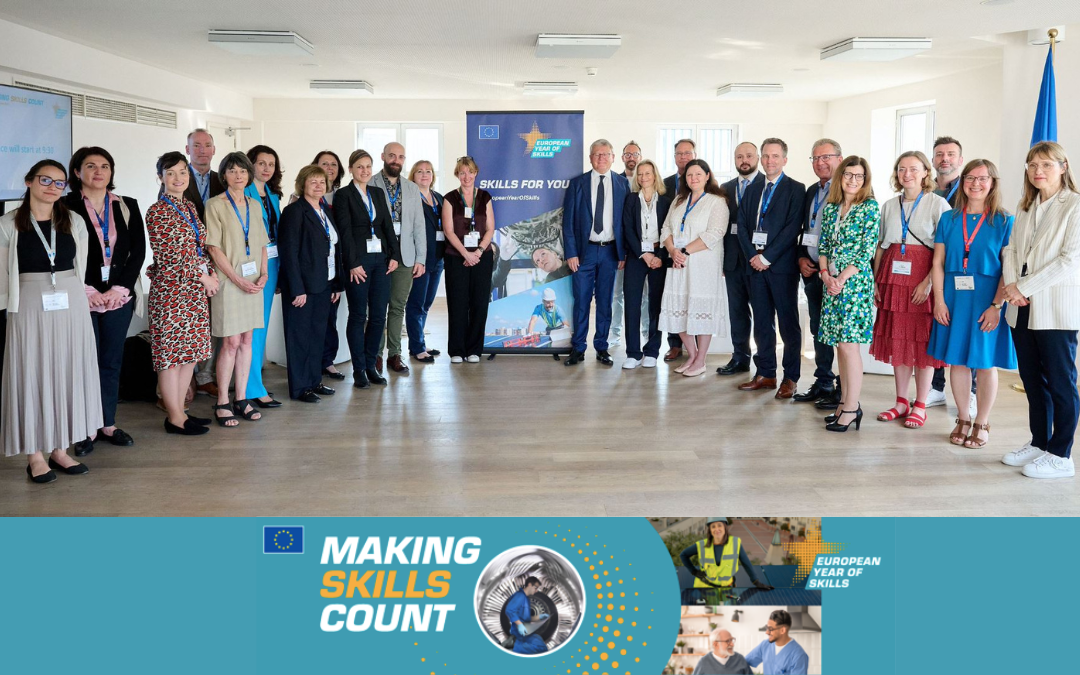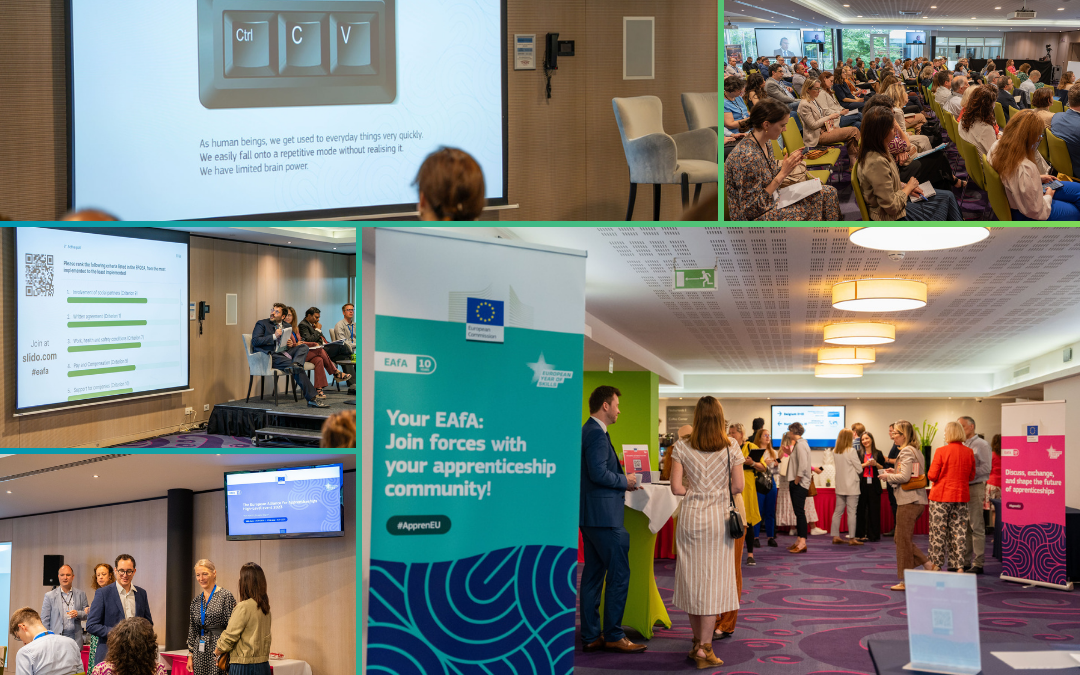Making Skills Count Conference
This was the second EYS event at the European level. The first one had a festival-like format and took place online. The recording is available here.
The recent conference titled Making Skills Count took place on 8 and 9 June, both in-person at the renowned Square Centre in Brussels and online. The event’s purpose was to more decisively present the reasons for declaring the EYS, various perspectives and approaches at the European and national level, and listen to stories and inspiring testimonies.
Many compelling words were spoken with a common denominator: skills matter, so let’s strive to acquire them, continually upgrade them, and adapt to (the rapidly changing) needs of individuals, society, and the economy!
According to the EYS working group at the EC, as many as 1,200 people attended the event, and it reached around 3.5 million views online. The multifaceted proceedings are captured in recordings of the plenary sessions and some workshops, available here. More examples of individuals who improved their skills with European resources and in connection with the EYS are available in a new Euronews article, which includes an interview with Commissioner Nicolas Schmit.
Celebrating the tenth anniversary of the European Alliance for Apprenticeships
The European Alliance for Apprenticeships (EAfA), a joint platform of the EC, Member States, social partners and other stakeholders, marked its ten years of operation on 26 and 27 June, both in-person and online, in conjunction with the EYS as well. The apprenticeship system, which has significantly expanded its presence or taken root in various parts of Europe during these years, plays a vital role in enhancing the workforce’s skills, not only among the youth but increasingly among adults as well.
EAfA aims to strengthen the quality, availability, and reputation of apprenticeships in Europe and promote apprentices’ mobility. In 2020, thanks to Commissioner Nicolas Schmit, the platform gained new momentum and highlighted six priority areas. These involve establishing national apprenticeship coalitions, supporting small and medium-sized enterprises that offer high-quality and effective apprenticeships, mobilising local and regional authorities as catalysts for the local business environment, greater involvement of social partners at the national level, creating sectoral pledges at the European level and the (re)launch of the European Alliance for Apprenticeships Network. EAfA now includes approximately 400 organisations from 39 European countries. There are significant variations among them regarding the well establishment of apprenticeships, which is why this event also served as a call for joining EAfA and forming alliances.
Strategic expertise to support EAfA’s efforts is provided by the European agencies Cedefop and ETF, so it is not surprising that their representatives played a significant role in the conference.
The Executive Director of CEDEFOP, Jürgen Siebel, opened the panel with the topic of adult apprenticeships and emphasised that we cannot avoid addressing this challenge, which theoretically concerns approximately 128 million adults in Europe. The reason lies in a significant lack of specific skills, and their acquisition will rely on upskilling and reskilling efforts. Siebel sees the solution in the high flexibility of adult apprenticeships, even if they take a formal form of education and training. Specifically, he advocates for (1) the removal of institutional barriers, (2) the establishment of financial and non-financial incentives (guidance, outreach), (3) flexibility in the organisation and implementation of apprenticeships, which should be modular and at least partially digitised, and (4) considering the characteristics of adults – tailored offerings, identification of prior learning, acquired knowledge and skills, etc. A paradigm shift is also needed on the side of employers – skill demanders. They should recognise the importance and benefits of adult apprenticeships and utilise guidance activities for themselves and their employees.
The Director of ETF, Pilvi Torsti, highlighted the importance of raising awareness that (adapted) adult apprenticeships exist. Petri Lempinen, the Director-General of the Finnish Ministry of Education and Culture, pointed out the role of regions and the urgency of supporting small and medium-sized enterprises. In particular, involving their employees in apprenticeships, which has a 100-year tradition in Finland, could be the right answer to these companies’ challenges. More about the panel’s starting points on adult apprenticeships is available here.
Panel participants unanimously agreed that support processes such as awareness-raising, guidance, mutual learning, etc., as well as considering social aspects, are crucial for establishing adult apprenticeships.
Recordings and materials from the entire two-day high-level event, which took place live, are available here.
Zvonka Pangerc Pahernik, MSc (zvonka.pangerc@acs.si), SIAE


